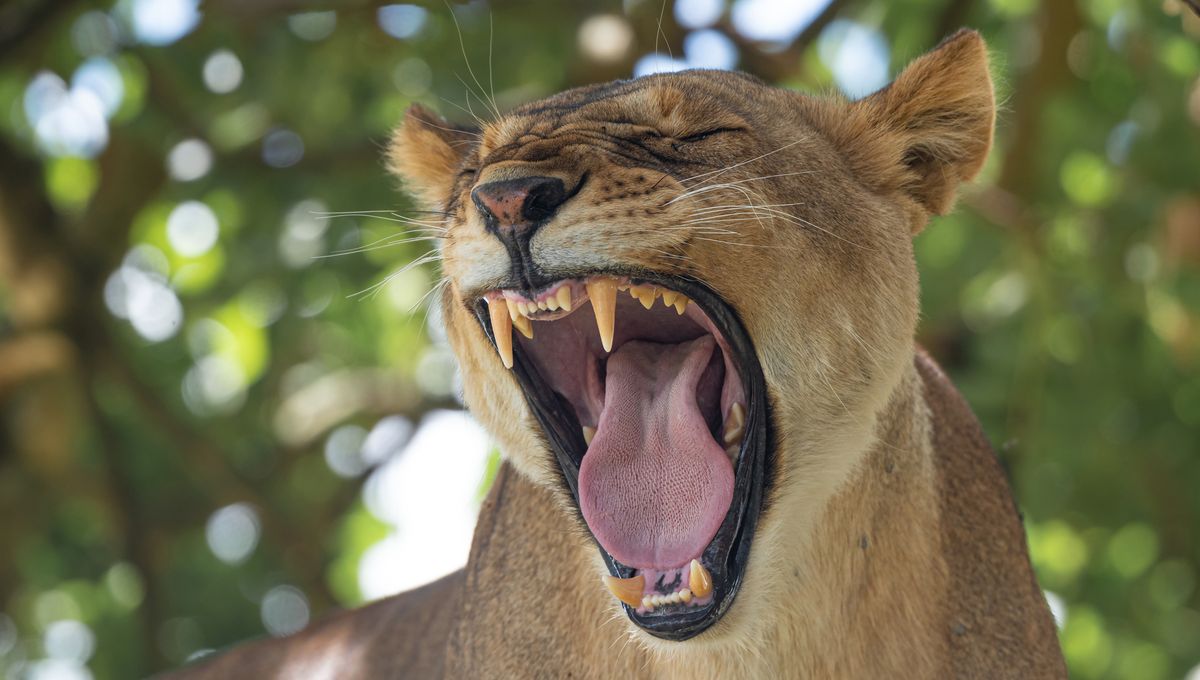
Wake up? Brush your teeth. Going to bed? Brush your teeth. The dental routine of being a human can be a bit monotonous, but it’s an important step towards maintaining a happy mouth. It can be slightly baffling, then, to spot a photo of a bonobo with a seemingly perfect grin. How are wild animals getting away with it as we dutifully march off to our next dental hygienist appointment? Why don’t animals have to brush their teeth?
It’s a question that led us to the office of Peter Kertesz, who, as well as seeing human patients, is Dental Consultant to ZSL London Zoo and numerous other wildlife establishments around the world. A quick glance at his website shows Kertesz tending to the teeth of everything from elephants to tigers and dolphins with the help of dental nurse Monika Mazurkiewicz.
We sat down with Kertesz to find out more about what it’s really like doing dentistry on non-human species, and why their days aren’t bookended by scrubbing their mouth bones.
How did you become a dental consultant for animals?
Peter Kertesz (PK): Going back many, many years, I got a phone call and he said, “I don’t know you, and you don’t know me, but I’ve got a problem with a little cat. Could you help me?” So, I went along. I did what I had to do. I cobbled together a few bits and pieces, instruments and some equipment, and did the job. And I said, “This is really hard work. Never again.”
And just look at you now.
PK: Yeah. What happened then was that our cat broke a tooth, and I said to the vet, “What are you going to do about it?” And he said, “Nothing. You’re going to do it.” After that I thought, well, if I’m going to carry on doing this, I better be better equipped than anybody else in the world. And we are.
What kind of animal patients have you seen?
PK: You name one, and I’ve seen it. Monika has been working with me for 15 and a half years, so she has seen a huge variety of animals as well. We’ve seen aardvarks, which are very difficult to operate on, big cats, elephants, sea mammals, sea lions, seals, walruses, dolphins, gorillas, chimpanzees, sloths, pygmy hippos, rhinos, bears…
Do their dentistry needs cross over with humans’?
PK: Trauma is very, very common. Decay is not that common. It’s fairly rare because their diets are relatively natural, certainly in Europe. They don’t have refined carbohydrates. They usually have a self-cleansing diet. In North America, it’s a bit different. They get a lot of processed food, but trauma is the biggest problem.
Also, you have to remember that in the protective environment of zoos and safari parks, the animals live longer than they would in the wild. They get very good food. They get very good health care. They’ve got no natural predators, so you’re seeing a geriatric population as well. So, you get geriatric changes.
Why don’t animals have to brush their teeth?
PK: We have to first of all understand that brushing doesn’t stop decay. Diet will, and don’t forget, we are on an unnatural diet that’s very often, heavy on refined carbohydrates, and that is going to cause the decay. If you’re going to stop the decay, you’re going to have to change the diet.
You do see decay [in some animals]. I think the worst case of decay I saw was in a rock hyrax. They were on a most wonderful, healthy fruit diet, but is it natural for them? Probably not. Do they get fruit in the middle of the desert? No. And they had the most horrendous decay. There was a massive infection from the destruction of the teeth, and they had massive systemic problems in all of the major organs, and that’s what killed them – because there’s a repercussion, don’t forget. The mouth is the gateway to the body, and the damaged or diseased unhealthy mouth can have major repercussions to the major organs.
You have to understand the habitat they’re from and what is right for them. They have to be on a diet that is as close to natural as possible because of their dentition. So, it’s complicated, and you have to look at the animal’s individual needs.
This article first appeared in Issue 28 of our digital magazine CURIOUS. Subscribe and never miss an issue.
Source Link: Why Don’t Animals Have To Brush Their Teeth?